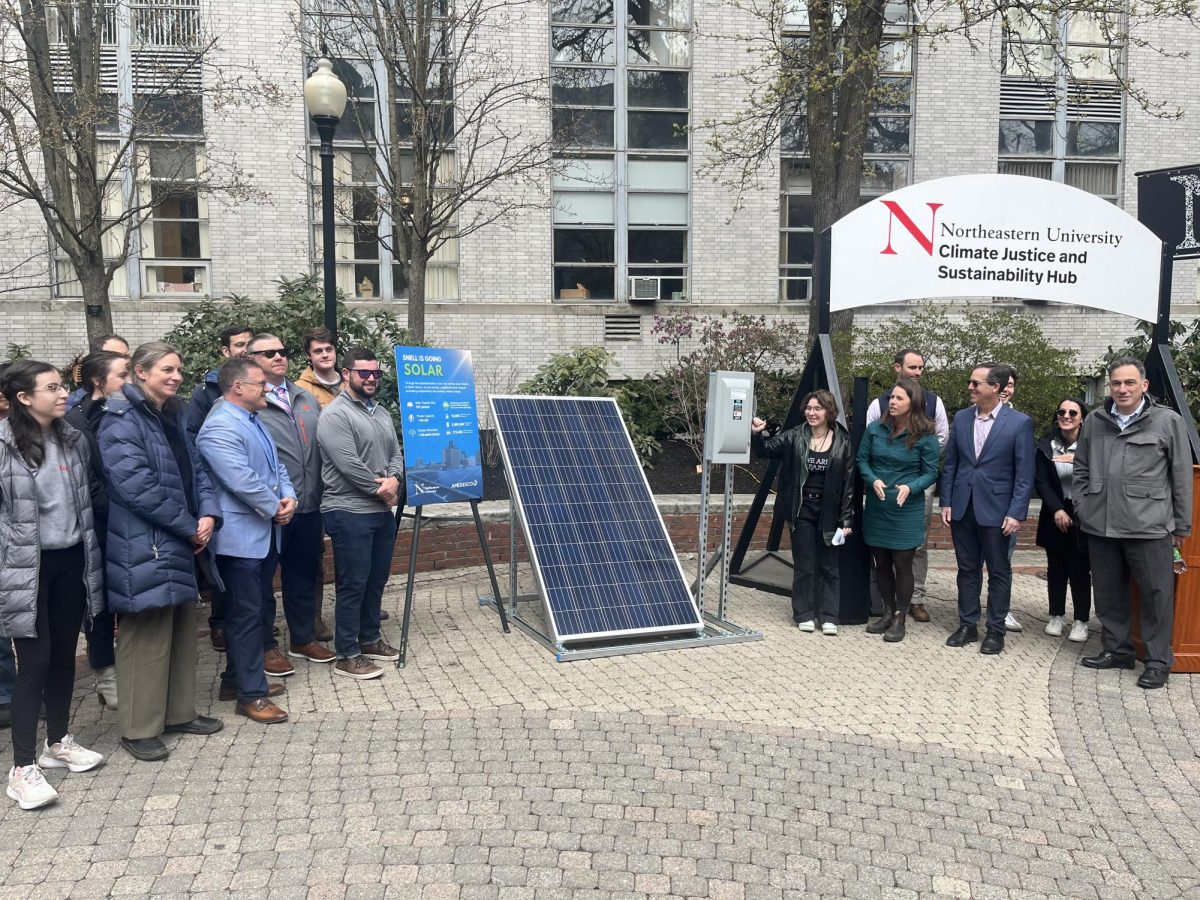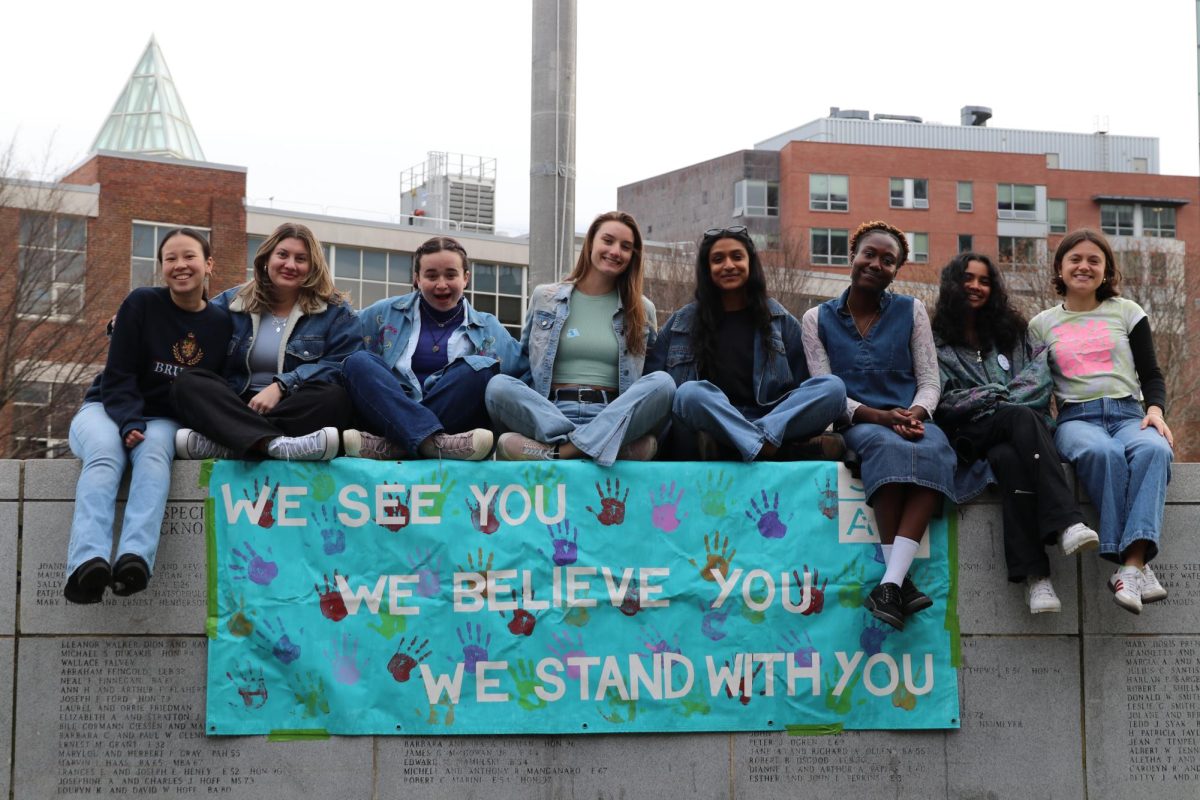On Feb. 15, The News, along with 12 other college journalists from across the country, spoke with singer-songwriter John Mayer about life on the road, his new album and his most embarrassing moment on stage.
Q: Rolling Stone just named you one of the “Guitar Gods,” [in their latest issue]. How does it feel to be honored like that? A: Well it feels great, as long as I suppress the need to argue back. It is a very external pride for someone else to say it. It’s certainly not the lexicon I would use in my mind, but I can’t deny the fact that I’m quite thrilled.
Q: So if you could choose a “Guitar God,” who would it be? A: The thing about it, is because if they’re so truly godly, quote unquote, which of course, none of them would ever say either, so densely impacting that they’re still just as vital today as they were when they first got on the scene. That, if anything, is going to make them a guitar god. A guitar god I think is going to be some 13-year-old kid 40, 50 years later picking up his music and still being moved by it.
Q: What do you think are some of the worst stereotypes rock stars like you receive? A: The messages that you’re most famous for putting across. I put 12 songs across every record, and there’s only really one or two that gets heard widespread by people. So it wouldn’t be a stereotype, but it would be like ‘oh well you just heard that one song out of 12.’ You hope that people can hear all 12 and get a full understanding, but yeah, so I guess the stereotype of ‘sensitive bed-wetter.’
Q: You were on Conan O’Brien in 2006 and performed “Sweet Home Chicago” [a popular blues standard]. Did you get to spend some time in Chicago? A: I actually end up in Chicago quite a bit. Every two or three months I have something that takes me to Chicago and it’s always cool to get there. I stopped actually on my way to Miami from L.A. to start rehearsals for this tour we’re on now. I stopped by Buddy Guy’s Legends of Chicago in Chicago and spent another night [there], which is great. It’s just one of those stars on the map we just end up in.
Q: With your latest album, “Continuum,” there are a couple of the songs that are social-issue-oriented. Are you going to be writing or showing more music in that sphere, kind of like how Bob Dylan did? A: I can only write about what I feel justified in writing about. I wouldn’t have felt justified in writing in the political climate five years ago because quite frankly five years ago the political climate was incredibly different, and now it’s kind of rolled into somewhat more of a lifestyle situation that a songwriter could write about easier. You know, I think the days of political singers singing about political things has passed us.
Q: What was your experience like at Berklee College of Music? A: I did have a great time there, but I don’t think the effect was had while I was there. I think that’s what sucks about going to a place like that – no matter what you’ve got, guitar players are like sand at the beach at Berklee College of Music. But my time there was great. I think the best teachings I ever got were from other students, and I think that’s what the whole point of Berklee is anyway.
Q: Since you’ve broken into the field of stand-up comedy, [Mayer has performed at comedy clubs recently], are you afraid of losing sight of your music? A: I don’t have a fear, but I do think that it happens sometimes. I’m not sure what the variables are in keeping it from happening, but I think I’m staying in the spotlight of music enough that – I mean, these other pursuits are actually all meant to kind of funnel back into music anyway. Stand-up comedy is just a faster song and more of them. You know, songwriting and comedy are the same. It’s instilling an idea into a sentiment that can affect people the easiest and the most. And they’re very similar. I mean the comedy thing is basically what I do at night when I’m home, so it’s like almost a private pursuit except for the fact that it’s on a stage in front of 80 to 100 people.
Q: What’s it like being on the road all the time? Do you miss being home? Does it bother you that you don’t see your friends and family for months at a time? A: What I’ve learned in my life, it’s a very interesting social study for me, to go back and forth between being the guy at home and being the guy on the road and being the guy in studio and being the guy in the interview. The environment around you has so much to do with your character, and when I’m home, my character really changes quite a bit. I become very domesticated, it becomes riding my bike, and the music thing – the music thing doesn’t leave but it’s kind of less put upon me by other people as a musician.
Q: You’ve been nominated for five Grammys this year – how do you feel about that? Are you excited about it? Were you surprised? A: Oh absolutely, I was definitely surprised to get five. I’m looking forward to the Grammys. But it’s almost like having to turn your nominations in whether or not you get Grammys for the categories you’re nominated in – you have to give your ticket stub back. It’s like here’s my nomination stub, did I get one? No? Oh well, can I have my stub back? No. In a way you almost never want the Grammys to happen because you have to fork over your nominations and giving up your nomination and not having a Grammy in the end is like getting a girl’s phone number but then never calling.
Q: “Continuum” was originally going to be a double album, so what’s going to happen to all the tracks that didn’t make it? Will they ever be released? A: There’s a lot of stuff that we sort of had in the vault that’s reached its peak. But I also realize that it’s very difficult to maintain a really solid base of quality stuff that’s coming out. “Continuum” is coming out exactly as I want it to be. I just don’t want another record that I don’t have as much quality control over to be the next record that comes out.
Q: In past solo work you’ve catered more toward a pop audience, while with the John Mayer Trio you’ve emphasized your blues roots. What were your intentions for “Continuum,” and what does the future hold for both aspects of your music? A: The “Continuum” record is the result of having burned off what I used to play in the Trio. I thought, three or four years into my career, that I was neglecting a certain side of my playing, thinking and writing, and to go straight into that, and just commit to that really when I was done with the Trio I had been successfully playing pop music and doing kind of guitar/bass rock music. And with both of those things under my belt, I could go into the studio and make “Continuum” in a really genuine way. I’d already written the calling card for being a guitar player in the Trio record, and it kind of made the “Continuum” album very, very genuine.
Q: How did you get involved with Music Lessons with John Mayer in Esquire? A: That was to the credit of a woman at the record company, who I spoke to in passing about how I’d eventually like to do a column in Esquire, and she got it for me. And then, it kind of became like, two years of homework. You turn your paper [in], you know, you turn your column in, and then you’ve got about four days, and they start asking you to send your next one in. It’s a cycle; it’s pretty crazy.
Q: What kind of changes are you seeing in yourself now that you’re pushing 30? A: I’m kind of slowing down, in a cool way, kind of like simmering down. I remember being really intense about things when I was in my early 20s. I guess you really kind of expand on the information that you’ve learned. When you get into your early 20s, you’re coming into all this knowledge and information and sex, and you really kind of want to play with your new toy – you get really into wanting to play with it. So a lot of college kids become very verbose and I just can’t connect like that anymore because I’ve done that. I’ve experimented with the knowledge that I have. But what happens when you get older you kind of compact, you kind of get like crystalline, and all of a sudden you’re kind of – I’m a little more Zen. Not completely Zen, but a little more Zen. And I don’t think I would have wanted to hang out with myself when I was 22.
Q: What are some of the craziest or strangest experiences you’ve had on tour so far? A: People would be very surprised to learn that I don’t have a very crazy tour. Everyone on my tour are family guys, and relaxed, and kind of mature and mellowed out. I would not last a day on a rock tour. I just feel like people would always be stealing my stuff or something. I feel like if I were from Fall Out Boy or something, I wouldn’t be able to keep my nice things on the road, because like, the girlfriend of the friend of the bass player would be hanging out drunk in the dressing room and have picked up my really nice camera and dropped it. Oh, that’s a bad analogy. [laughs]
Q: Were some of your goals and hopes for this new album fulfilled? A: Yes, all in kind of a musical level. Being on stage every night and having a set list where you can look down and be like, “oh yes ‘Belief’ is coming up, oh yeah ‘Gravity’ is coming up, oh ‘Vultures’ is coming up, oh cool, cool, cool.” That’s all I really wanted was to have a record that outsold and out-staged the way this one does. And I really felt the feedback of it affecting people in a way that my first album didn’t. There’s an emotional connection that this record makes that is not blocked by the cerebral belief in myself, that I think I may have suffered from in the past.
Q: What was your most embarrassing moment on stage? A: Well there was the old story when I was touring, opening for Guster Tabernakle, and I was putting tea bags inside of my Poland Spring water bottles. I was thinking that even though I couldn’t make hot tea, I could at least put the bag in there and keep the string out over the top of the bottle. And what happened was that the string came off the teabag and I swallowed it, but not all the way, so it stuck in my throat and I just had to level with people. I just had to level like “hey I’ve got to cough the thing up right now,” and I was hacking onstage. It was pretty embarrassing.














